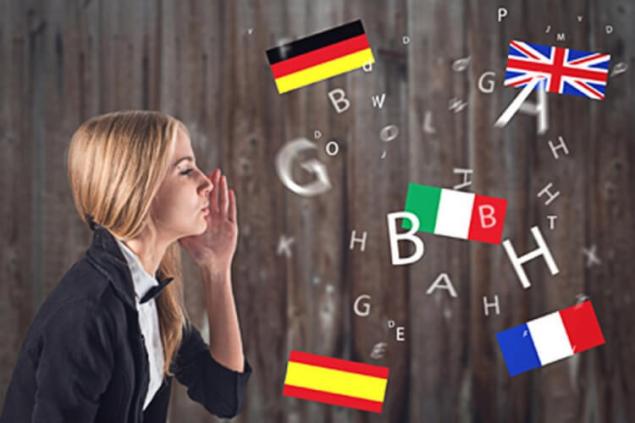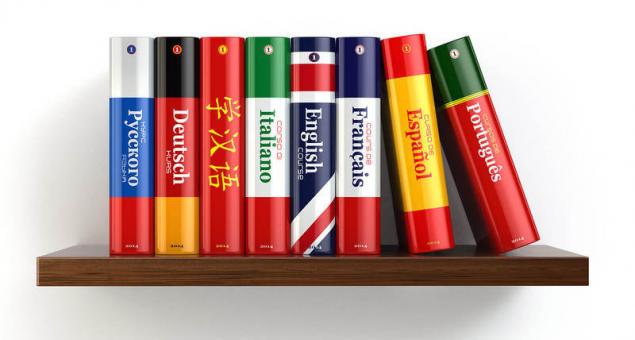1243
Think about the good: as language protects us from negative emotions
As early as 1969, scientists from the University of Illinois have begun to study how the vocabulary used by people in different countries. It was found that, irrespective of membership of a particular culture, people often prefer colored positive words than negative. In psychology this phenomenon is known as the principle of Pollyanna, named Eleanor Porter's novel heroine, in which the main character trying to find something good in every situation.

Obviously, so behave not all - so since the first study was carried out a few, and their results were very inconsistent
. A recent study carried out Peter Dodd and his colleagues at the Computational Story Lab at the University of Vermont. They measured the frequency of the use of positive and negative words in the body of the 100,000 words from 24 languages, representing different cultures of the world.
"In the first place in the list of languages with the greatest number of words for the joy and happiness is Spanish, followed by Portuguese and English, and completes the list of the Chinese language»
The researchers started with the fact that the collected body of words from 10 languages, including English, Spanish, French, German, Brazilian Portuguese, Korean, Chinese, Russian, Indonesian and Arabic. For each language, they selected 10 000 most commonly used words. The team paid a native speaker, so that they evaluated each word according to their feelings on a scale from the most negative or sad to most positive. At every word had 50 such ratings, and in general scientists have won an impressive database of almost 5 million individual assessments. On this basis, they built a graph perception of words for each language.
It turned out that in the first place in the list of languages with the greatest number of words for the joy and happiness is Spanish, followed by Portuguese and English, and completes the list of the Chinese language.
And this is only the beginning of the study the issue. Now Dodd and his colleagues in the same way to analyze the tone of novels - they count the number of positive and negative words in the text to conclude his emotional bias
. Their research shows that, for example, "Moby Dick" and "Crime and Punishment" at the end of low notes, but the interchange "Count of Monte Cristo" - a surge of positivity. The team also set up a website where you can see the distribution of positive and negative words in different novels and see how the changed tone in the course of work, and most importantly - to take part in the evaluation of the emotional palette of texts
.
Here you can find out how the same word is perceived in different languages. For example, on a scale from 1 to 9, where 9 - is absolute happiness, the Germans appreciate the word "gift" on 3, 54. For comparison, the British believe the word "gift" a very positive and give it a 7, 72 points. And with the word "hot" is the opposite: the British estimate it at 4, 16, and the Germans - to 7.
The study raises many interesting questions. For example, why there are differences in the perception of words? Why Chinese less "happy" language than German, Portuguese or any other language in the study? And why Spanish was the leader?
These issues need to be resolved in the future. But now it is clear that the Dodd and his team were able to show what a huge contribution can make data analysis in linguistics and psychology, if you organize it as a crowdsourcing research. This method should probably become a new standard, which will continue to be guided in hypothesis testing.
In addition, now the analysis of the words tone has become an important tool for the study of moods on Twitter. It is used to find out the attitude to some products or political events. And here it is necessary to take into account the tendency of language to the positive opisaniyu.opublikovano econet.ru
There are many ways to congratulate a loved one. How to please your friends and loved ones? It's simplicity is very emotional and memorable you can make a birthday card in any language.

Obviously, so behave not all - so since the first study was carried out a few, and their results were very inconsistent
. A recent study carried out Peter Dodd and his colleagues at the Computational Story Lab at the University of Vermont. They measured the frequency of the use of positive and negative words in the body of the 100,000 words from 24 languages, representing different cultures of the world.
"In the first place in the list of languages with the greatest number of words for the joy and happiness is Spanish, followed by Portuguese and English, and completes the list of the Chinese language»
The researchers started with the fact that the collected body of words from 10 languages, including English, Spanish, French, German, Brazilian Portuguese, Korean, Chinese, Russian, Indonesian and Arabic. For each language, they selected 10 000 most commonly used words. The team paid a native speaker, so that they evaluated each word according to their feelings on a scale from the most negative or sad to most positive. At every word had 50 such ratings, and in general scientists have won an impressive database of almost 5 million individual assessments. On this basis, they built a graph perception of words for each language.
It turned out that in the first place in the list of languages with the greatest number of words for the joy and happiness is Spanish, followed by Portuguese and English, and completes the list of the Chinese language.
And this is only the beginning of the study the issue. Now Dodd and his colleagues in the same way to analyze the tone of novels - they count the number of positive and negative words in the text to conclude his emotional bias
. Their research shows that, for example, "Moby Dick" and "Crime and Punishment" at the end of low notes, but the interchange "Count of Monte Cristo" - a surge of positivity. The team also set up a website where you can see the distribution of positive and negative words in different novels and see how the changed tone in the course of work, and most importantly - to take part in the evaluation of the emotional palette of texts
.

Here you can find out how the same word is perceived in different languages. For example, on a scale from 1 to 9, where 9 - is absolute happiness, the Germans appreciate the word "gift" on 3, 54. For comparison, the British believe the word "gift" a very positive and give it a 7, 72 points. And with the word "hot" is the opposite: the British estimate it at 4, 16, and the Germans - to 7.
The study raises many interesting questions. For example, why there are differences in the perception of words? Why Chinese less "happy" language than German, Portuguese or any other language in the study? And why Spanish was the leader?
These issues need to be resolved in the future. But now it is clear that the Dodd and his team were able to show what a huge contribution can make data analysis in linguistics and psychology, if you organize it as a crowdsourcing research. This method should probably become a new standard, which will continue to be guided in hypothesis testing.
In addition, now the analysis of the words tone has become an important tool for the study of moods on Twitter. It is used to find out the attitude to some products or political events. And here it is necessary to take into account the tendency of language to the positive opisaniyu.opublikovano econet.ru
There are many ways to congratulate a loved one. How to please your friends and loved ones? It's simplicity is very emotional and memorable you can make a birthday card in any language.
What products are necessary for liver health
Arcimoto SRK: three-wheeled mini-electric car for $ 12,000
























